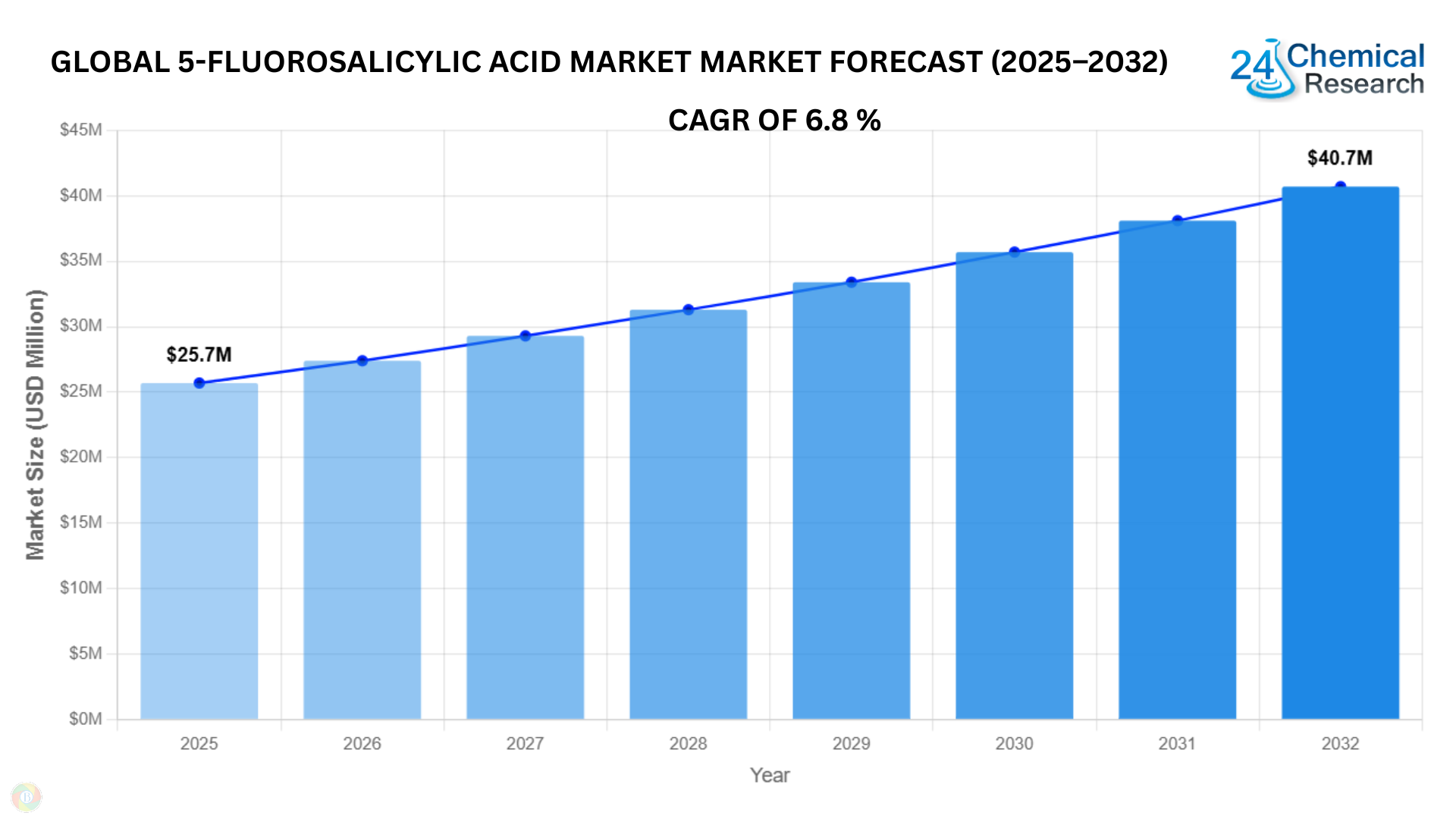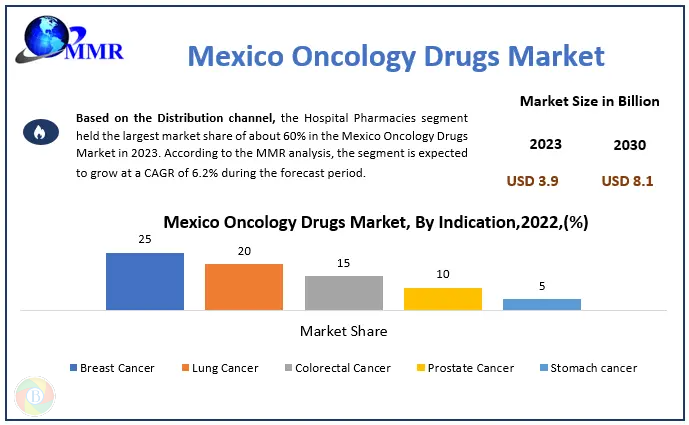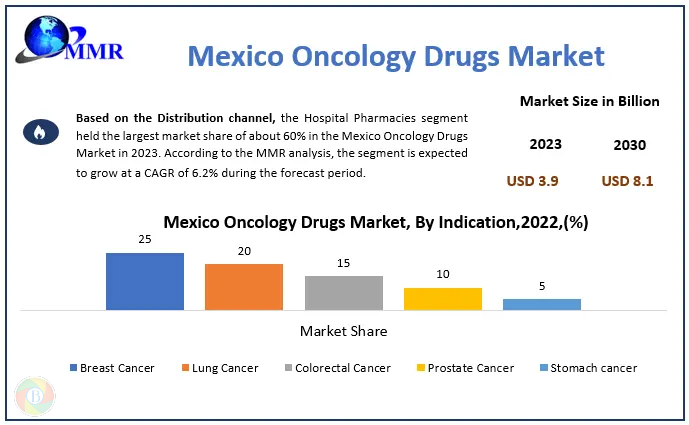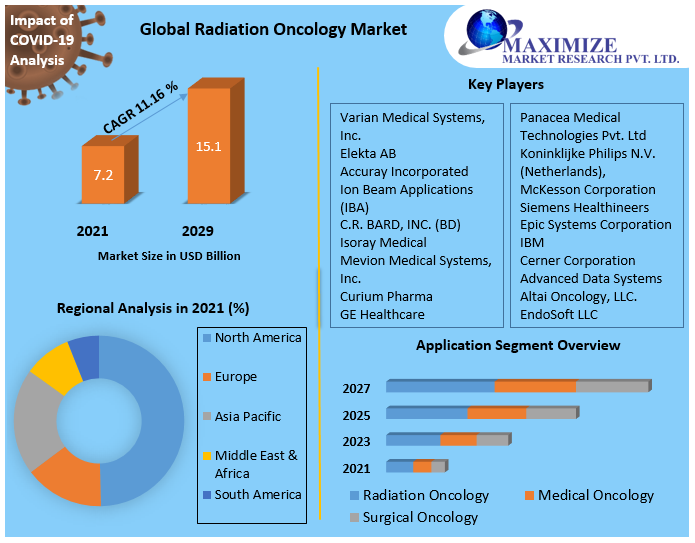Digital Twins in Healthcare Market to Grow at 24.4% CAGR Through 2031
The global Digital Twins in Healthcare Market is rapidly gaining momentum, with its valuation projected to escalate at a compound annual growth rate (CAGR) of 24.4% during the forecast period (2024–2031). The technology is revolutionizing patient care, hospital operations, and medical research through real-time simulation, predictive diagnostics, and treatment optimization.
Digital twins—virtual replicas of physical healthcare systems, processes, or even individual patients—are increasingly being adopted to improve decision-making, reduce costs, and enhance patient outcomes. Their use spans across surgical planning, hospital workflow optimization, drug development, and chronic disease management.
Market Dynamics
Rising Demand for Personalized and Predictive Medicine
The shift from reactive to predictive healthcare models has accelerated the adoption of digital twin technology. These models allow clinicians to simulate treatment plans tailored to the patient's genetic, behavioral, and physiological profile, increasing therapeutic precision and reducing trial-and-error approaches.
Integration of AI, IoT, and Big Data in Clinical Environments
The convergence of artificial intelligence (AI), the Internet of Things (IoT), and big data analytics with healthcare infrastructure enables the real-time synchronization of physical and virtual models. Continuous health monitoring via the Internet and IoT sensors feeds vital data into patient digital twins, enabling simulations for early disease detection and personalized intervention strategies.
Operational Efficiency and Hospital Management
Digital twins are increasingly used to simulate hospital workflows and optimize capacity planning. Hospitals are leveraging virtual models to analyze staff movements, patient flow, and equipment utilization, thereby minimizing delays, reducing costs, and improving overall healthcare delivery.
Accelerated Drug Discovery and Clinical Trials
In the pharmaceutical sector, digital twins are used to model disease progression and simulate patient responses to treatments, reducing the time and cost associated with clinical trials. These models improve drug development accuracy and minimize trial failures by predicting adverse effects and dosing responses.
Chronic Disease and Elderly Care Management
Digital twin applications in managing chronic illnesses like diabetes, cardiovascular disease, and neurological conditions are expanding. The ability to simulate real-time physiological responses helps monitor long-term progression and optimize therapy plans, especially in aging populations with multiple comorbidities.
Download Sample Report:
https://www.datamintelligence.com/download-sample/digital-twins-in-healthcare-market?u
Key Market Segments
By Component:
Software: Comprising platforms for modeling, simulation, and analytics, software holds the largest share due to rising adoption across hospitals and research facilities.
Services: Consulting, integration, and maintenance services are in high demand as healthcare institutions integrate digital twin platforms into legacy systems.
By Application:
Patient Monitoring and Personalized Treatment: Enables real-time simulation of individual health conditions and responses to therapies.
Hospital Asset and Workflow Management: Optimizes operational planning, bed occupancy, and equipment usage.
Surgical Planning: Virtual testing of surgical scenarios for improved outcomes and reduced intraoperative risk.
Drug Development: Simulates biological responses to compounds, improving preclinical testing.
Emergency Care and ICU Simulation: Enhances triage efficiency and patient stabilization strategies using predictive modeling.
By End User:
Hospitals and Clinics: Lead adoption due to direct impact on patient care and hospital administration.
Pharmaceutical and Biotechnology Companies: Use digital twins in R&D and early-stage clinical trials.
Academic and Research Institutions: Drive innovation by experimenting with population health and genomic applications.
Request a customized report tailored to your business needs:
https://www.datamintelligence.com/customize/digital-twins-in-healthcare-market
Regional Insights
North America holds the largest market share due to strong R&D investment, technological infrastructure, and early adoption across hospitals and pharma companies.
Europe is following closely, led by healthcare digitalization initiatives in Germany, the UK, and the Nordic countries.
Asia-Pacific is projected to grow at the fastest pace, driven by the digital transformation of healthcare systems in Japan, China, India, and South Korea, supported by government funding and private sector innovation.
Latin America and the Middle East & Africa are emerging markets with growing telehealth penetration and healthcare IT investments.
Latest Trends and Industry Developments
U.S.-based hospitals are integrating digital twins with EHR systems and AI-based decision support tools to reduce diagnostic delays and improve care coordination.
Japan is investing in smart hospital ecosystems, where digital twin technology is used for elderly care and robotic surgery planning.
Cloud-based platforms are becoming the norm, allowing decentralized access and easier integration with mobile health applications.
Startups and tech giants are forming strategic partnerships with healthcare providers to co-develop and deploy real-time patient digital twin models.
FDA regulatory progress is being made to include digital twin simulations in drug approval documentation, increasing confidence in virtual testing.
Buy an Exclusive copy of this report:
https://www.datamintelligence.com/buy-now-page?report=digital-twins-in-healthcare-market
Challenges and Constraints
Data Privacy and Cybersecurity Concerns
Handling sensitive patient data requires robust encryption and compliance with healthcare regulations like HIPAA and GDPR. Any breach could damage trust and stall adoption.
High Cost and Complexity of Implementation
Integrating digital twin platforms requires substantial investment in infrastructure, skilled IT personnel, and system interoperability, posing a barrier for small and mid-sized providers.
Lack of Standardization
The absence of universal standards for modeling, validation, and performance benchmarking hampers scalability and regulatory acceptance.
Data Fragmentation and Integration Issues
EHRs, IoT devices, lab systems, and imaging databases often exist in silos, making real-time data integration into a comprehensive twin model challenging.
Strategic Recommendations
Invest in Interoperability Solutions: Promote platforms that can integrate seamlessly with diverse clinical and operational systems.
Prioritize Regulatory Readiness: Collaborate with regulatory bodies to develop digital twin validation frameworks for healthcare and pharmaceutical use.
Strengthen Cybersecurity Infrastructure: Implement blockchain or advanced encryption protocols to protect patient data integrity.
Expand Clinical Use Cases: Conduct pilots in ICU, oncology, and chronic disease care to demonstrate cost savings and outcome improvements.
Foster public-private partnerships: Encourage collaboration between tech providers, hospitals, insurers, and academic institutions to fund and test digital twin applications.
Subscribe for more Industry reports:
https://www.datamintelligence.com/reports-subscription
About Us:
DataM Intelligence is a market research and consulting firm that provides end-to-end business solutions to organizations, from research to consulting. We, at DataM Intelligence, leverage our top trademark trends, insights, and developments to provide swift and astute solutions to clients like you. We encompass a multitude of syndicate reports and customized reports with a robust methodology.
Our research database features countless statistics and in-depth analyses across a wide range of 6300+ reports in 40+ domains, creating business solutions for more than 200+ companies across 50+ countries, catering to the key business research needs that influence the growth trajectory of our vast clientele.
Contact Us:
Company Name: DataM Intelligence
Contact Person: Sai Kiran
Email: sai.k@datamintelligence.com
Phone: +1 877 441 4866
Website:
https://www.datamintelligence.com
Digital Twins in Healthcare Market to Grow at 24.4% CAGR Through 2031
The global Digital Twins in Healthcare Market is rapidly gaining momentum, with its valuation projected to escalate at a compound annual growth rate (CAGR) of 24.4% during the forecast period (2024–2031). The technology is revolutionizing patient care, hospital operations, and medical research through real-time simulation, predictive diagnostics, and treatment optimization.
Digital twins—virtual replicas of physical healthcare systems, processes, or even individual patients—are increasingly being adopted to improve decision-making, reduce costs, and enhance patient outcomes. Their use spans across surgical planning, hospital workflow optimization, drug development, and chronic disease management.
Market Dynamics
Rising Demand for Personalized and Predictive Medicine
The shift from reactive to predictive healthcare models has accelerated the adoption of digital twin technology. These models allow clinicians to simulate treatment plans tailored to the patient's genetic, behavioral, and physiological profile, increasing therapeutic precision and reducing trial-and-error approaches.
Integration of AI, IoT, and Big Data in Clinical Environments
The convergence of artificial intelligence (AI), the Internet of Things (IoT), and big data analytics with healthcare infrastructure enables the real-time synchronization of physical and virtual models. Continuous health monitoring via the Internet and IoT sensors feeds vital data into patient digital twins, enabling simulations for early disease detection and personalized intervention strategies.
Operational Efficiency and Hospital Management
Digital twins are increasingly used to simulate hospital workflows and optimize capacity planning. Hospitals are leveraging virtual models to analyze staff movements, patient flow, and equipment utilization, thereby minimizing delays, reducing costs, and improving overall healthcare delivery.
Accelerated Drug Discovery and Clinical Trials
In the pharmaceutical sector, digital twins are used to model disease progression and simulate patient responses to treatments, reducing the time and cost associated with clinical trials. These models improve drug development accuracy and minimize trial failures by predicting adverse effects and dosing responses.
Chronic Disease and Elderly Care Management
Digital twin applications in managing chronic illnesses like diabetes, cardiovascular disease, and neurological conditions are expanding. The ability to simulate real-time physiological responses helps monitor long-term progression and optimize therapy plans, especially in aging populations with multiple comorbidities.
Download Sample Report: https://www.datamintelligence.com/download-sample/digital-twins-in-healthcare-market?u
Key Market Segments
By Component:
Software: Comprising platforms for modeling, simulation, and analytics, software holds the largest share due to rising adoption across hospitals and research facilities.
Services: Consulting, integration, and maintenance services are in high demand as healthcare institutions integrate digital twin platforms into legacy systems.
By Application:
Patient Monitoring and Personalized Treatment: Enables real-time simulation of individual health conditions and responses to therapies.
Hospital Asset and Workflow Management: Optimizes operational planning, bed occupancy, and equipment usage.
Surgical Planning: Virtual testing of surgical scenarios for improved outcomes and reduced intraoperative risk.
Drug Development: Simulates biological responses to compounds, improving preclinical testing.
Emergency Care and ICU Simulation: Enhances triage efficiency and patient stabilization strategies using predictive modeling.
By End User:
Hospitals and Clinics: Lead adoption due to direct impact on patient care and hospital administration.
Pharmaceutical and Biotechnology Companies: Use digital twins in R&D and early-stage clinical trials.
Academic and Research Institutions: Drive innovation by experimenting with population health and genomic applications.
Request a customized report tailored to your business needs: https://www.datamintelligence.com/customize/digital-twins-in-healthcare-market
Regional Insights
North America holds the largest market share due to strong R&D investment, technological infrastructure, and early adoption across hospitals and pharma companies.
Europe is following closely, led by healthcare digitalization initiatives in Germany, the UK, and the Nordic countries.
Asia-Pacific is projected to grow at the fastest pace, driven by the digital transformation of healthcare systems in Japan, China, India, and South Korea, supported by government funding and private sector innovation.
Latin America and the Middle East & Africa are emerging markets with growing telehealth penetration and healthcare IT investments.
Latest Trends and Industry Developments
U.S.-based hospitals are integrating digital twins with EHR systems and AI-based decision support tools to reduce diagnostic delays and improve care coordination.
Japan is investing in smart hospital ecosystems, where digital twin technology is used for elderly care and robotic surgery planning.
Cloud-based platforms are becoming the norm, allowing decentralized access and easier integration with mobile health applications.
Startups and tech giants are forming strategic partnerships with healthcare providers to co-develop and deploy real-time patient digital twin models.
FDA regulatory progress is being made to include digital twin simulations in drug approval documentation, increasing confidence in virtual testing.
Buy an Exclusive copy of this report: https://www.datamintelligence.com/buy-now-page?report=digital-twins-in-healthcare-market
Challenges and Constraints
Data Privacy and Cybersecurity Concerns
Handling sensitive patient data requires robust encryption and compliance with healthcare regulations like HIPAA and GDPR. Any breach could damage trust and stall adoption.
High Cost and Complexity of Implementation
Integrating digital twin platforms requires substantial investment in infrastructure, skilled IT personnel, and system interoperability, posing a barrier for small and mid-sized providers.
Lack of Standardization
The absence of universal standards for modeling, validation, and performance benchmarking hampers scalability and regulatory acceptance.
Data Fragmentation and Integration Issues
EHRs, IoT devices, lab systems, and imaging databases often exist in silos, making real-time data integration into a comprehensive twin model challenging.
Strategic Recommendations
Invest in Interoperability Solutions: Promote platforms that can integrate seamlessly with diverse clinical and operational systems.
Prioritize Regulatory Readiness: Collaborate with regulatory bodies to develop digital twin validation frameworks for healthcare and pharmaceutical use.
Strengthen Cybersecurity Infrastructure: Implement blockchain or advanced encryption protocols to protect patient data integrity.
Expand Clinical Use Cases: Conduct pilots in ICU, oncology, and chronic disease care to demonstrate cost savings and outcome improvements.
Foster public-private partnerships: Encourage collaboration between tech providers, hospitals, insurers, and academic institutions to fund and test digital twin applications.
Subscribe for more Industry reports: https://www.datamintelligence.com/reports-subscription
About Us:
DataM Intelligence is a market research and consulting firm that provides end-to-end business solutions to organizations, from research to consulting. We, at DataM Intelligence, leverage our top trademark trends, insights, and developments to provide swift and astute solutions to clients like you. We encompass a multitude of syndicate reports and customized reports with a robust methodology.
Our research database features countless statistics and in-depth analyses across a wide range of 6300+ reports in 40+ domains, creating business solutions for more than 200+ companies across 50+ countries, catering to the key business research needs that influence the growth trajectory of our vast clientele.
Contact Us:
Company Name: DataM Intelligence
Contact Person: Sai Kiran
Email: sai.k@datamintelligence.com
Phone: +1 877 441 4866
Website: https://www.datamintelligence.com













